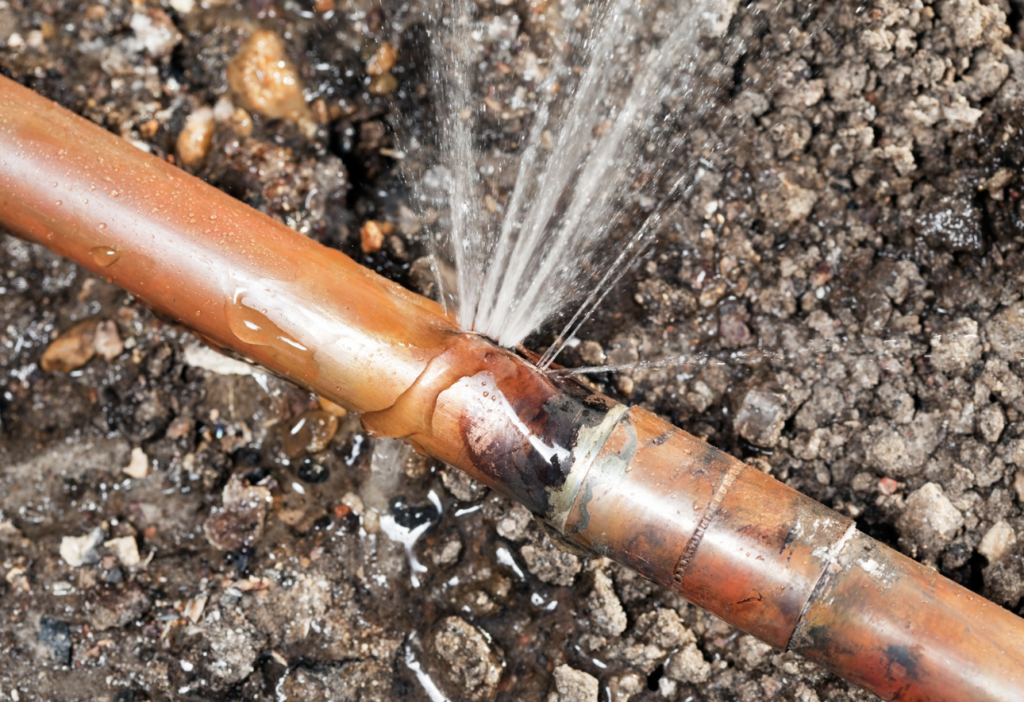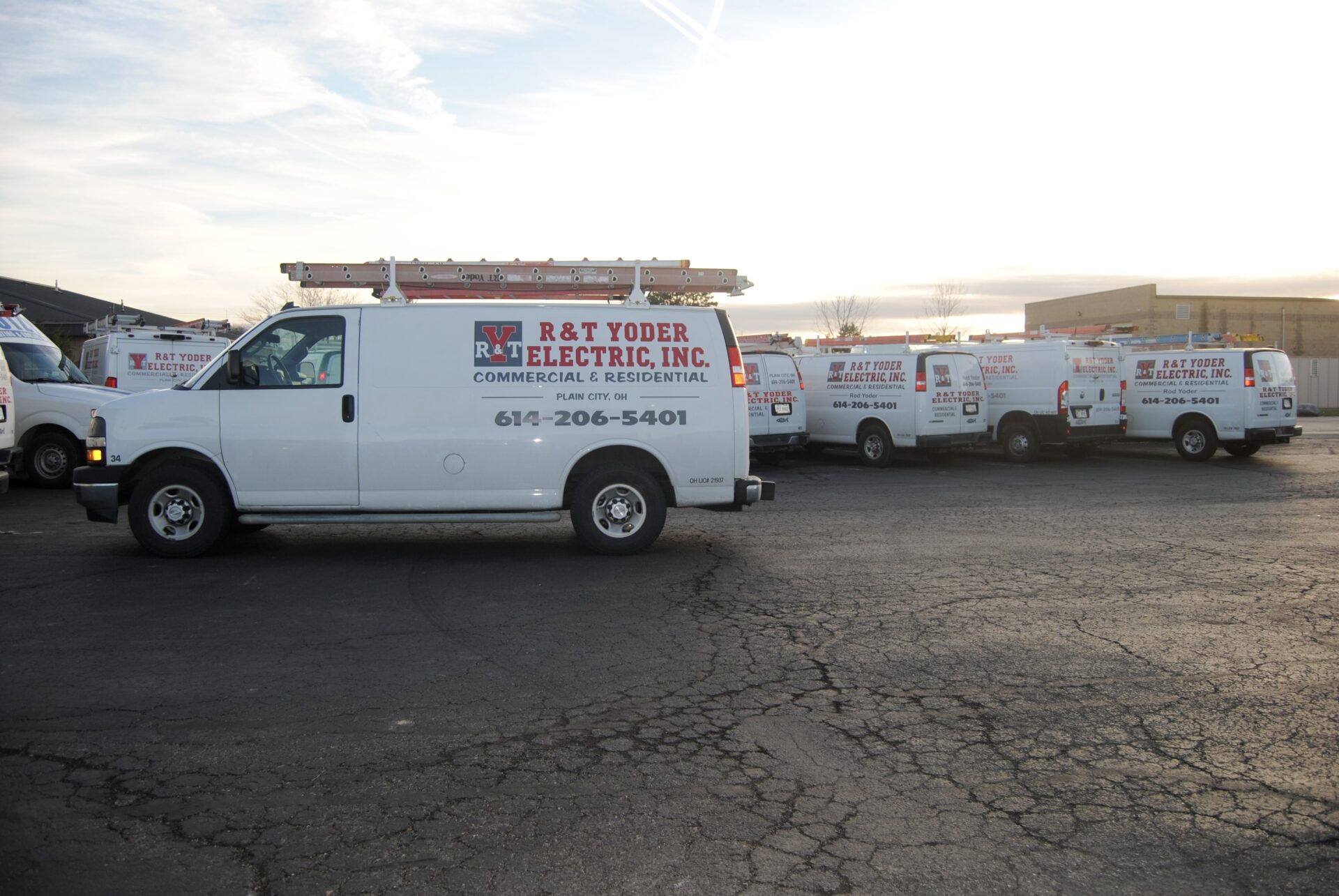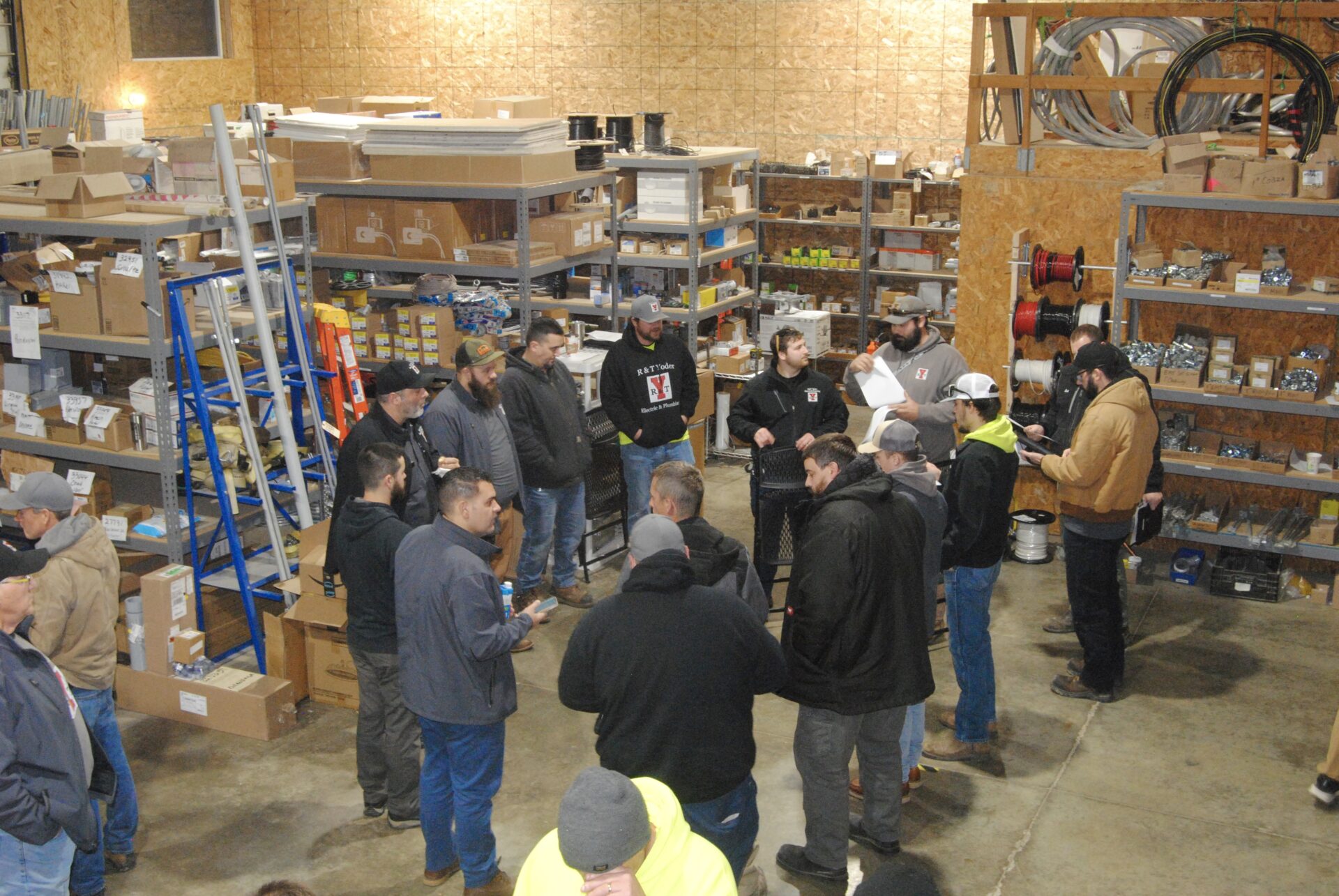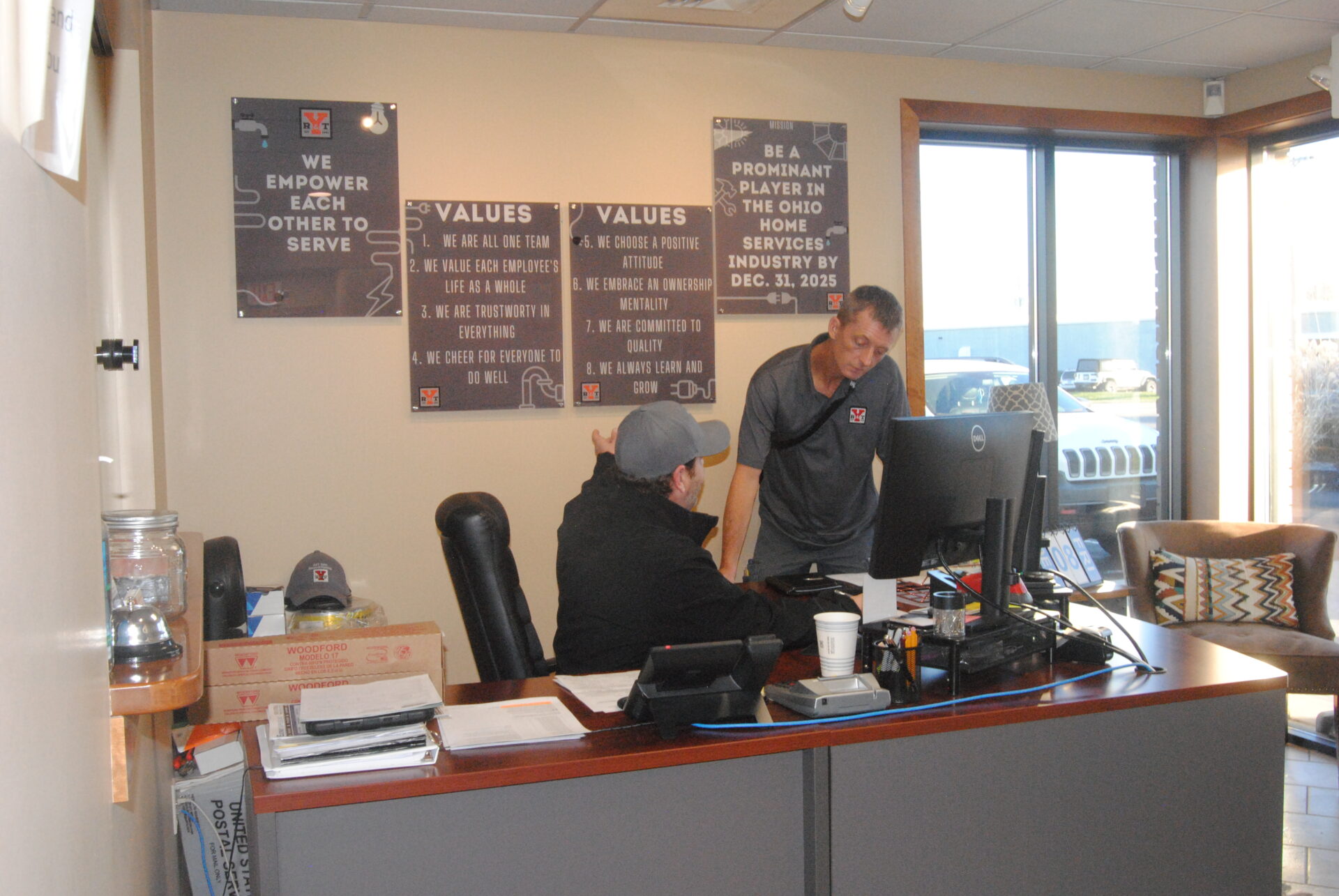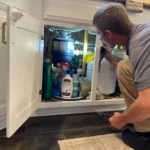The main water line is the essential pipeline that brings fresh water into your home, enabling everything from daily hydration to laundry and bathing. Over time, this crucial pipeline can suffer wear and tear, potentially leading to leaks, blockages, or even total failure. Understanding when it’s time for a main water line replacement is essential to maintaining a functional and efficient water supply. In this guide, we’ll cover key indicators that it may be time to replace your main water line, common warning signs of damage, and the benefits of proactive plumbing upgrades.
Signs It’s Time for Main Water Line Replacement
1. Frequent Water Leaks
One of the clearest signs that you may need a main water line replacement is the presence of frequent leaks. While minor leaks may occasionally occur in any plumbing system, recurring leaks in your main water line indicate an underlying issue. Leaks in the main line can lead to significant water loss, increased utility bills, and potential property damage if not addressed.
2. Reduced Water Pressure
Low water pressure throughout your home is another common sign of a main water line problem. When water pressure is consistently low, it could be due to clogs, sediment buildup, or cracks in the main line. Persistent low pressure may indicate it’s time for a plumbing upgrade, especially if other solutions, such as unclogging pipes, have not resolved the issue.
3. Discolored or Rusty Water
Water discoloration is often due to rust and sediment buildup in aging pipes. If you notice brown, rusty, or cloudy water coming from your taps, this may indicate that your main water line is deteriorating. Rusty water isn’t just unappealing; it can also impact water quality, making it less suitable for drinking and bathing. Main water line replacement can resolve these issues, restoring clean and safe water.
4. Water Puddles in the Yard
Unexplained wet spots or puddles in your yard, particularly around the area where your water line is buried, can signal a leak or break in the main water line. These leaks cause water to seep into the ground, resulting in saturated soil and even sinkholes. If left unchecked, these leaks can worsen and lead to costly repairs and damage to landscaping.
5. Increased Water Bills
A sudden or unexplained increase in your water bills may indicate a hidden leak in your main water line. When the main line is damaged, water continuously leaks into the ground, causing usage to spike even if you haven’t changed your water habits. If you notice a steady increase in water bills without an identifiable reason, it’s time to consider main water line replacement.
Causes of Main Water Line Damage
1. Aging Pipes
As water lines age, they become more susceptible to wear and tear. Older lines, particularly those made from materials like galvanized steel or cast iron, are more prone to corrosion and buildup. These materials are more vulnerable to damage, which can lead to leaks, clogs, and compromised water quality.
2. Soil Shifts and Ground Movement
Over time, natural soil shifts or ground movement caused by tree roots, erosion, and even earthquakes can impact your main water line. These shifts place stress on the line, potentially causing it to bend, crack, or even break. If your home is in an area prone to soil shifts, it’s wise to inspect your water line periodically to prevent major issues.
3. Tree Root Intrusion
Tree roots are a leading cause of main water line damage. Roots naturally seek out sources of water, and if your main water line has small leaks, roots may infiltrate it in search of moisture. Root intrusion can cause clogs, cracks, and even pipe bursts, leading to significant damage if left unaddressed.
4. Extreme Temperature Changes
Fluctuations in temperature, particularly between extreme hot and cold weather, can place stress on your main water line. Freezing and thawing cycles can cause pipes to expand and contract, leading to cracks or even bursts. If you live in an area with harsh winters, it’s essential to insulate and monitor your main line to prevent damage.
5. Poor Initial Installation
In some cases, main water line issues stem from poor initial installation. Incorrect pipe fittings, inadequate insulation, or low-quality materials can cause early wear and tear. If you’re experiencing recurrent issues with a relatively new main line, the original installation may be to blame, and main water line replacement with a professional plumber may be necessary.
Benefits of Main Water Line Replacement
1. Improved Water Quality
Replacing an old, deteriorating main water line improves water quality by eliminating rust, sediment, and contaminants that accumulate in aging pipes. With a new main line, you’ll enjoy cleaner, clearer water that’s safer for drinking, cooking, and bathing.
2. Enhanced Water Pressure
Low water pressure caused by damaged or clogged pipes can be frustrating. Replacing your main water line helps restore adequate water pressure throughout your home, allowing you to run multiple fixtures simultaneously without a drop in performance.
3. Reduced Water Bills
Repairing or replacing a damaged main water line can significantly reduce your water bills by preventing leaks that lead to wasted water. When leaks are eliminated, water usage stabilizes, helping you save on monthly utility costs.
4. Preventing Future Plumbing Issues
Main water line replacement is an effective preventative measure that helps avoid major plumbing issues down the line. A new, high-quality line can reduce the need for future repairs, minimize the risk of emergency plumbing situations, and ensure long-term system reliability.
5. Boosting Property Value
Replacing an aging main water line can increase the value of your property. A well-maintained plumbing system is attractive to potential buyers, who will appreciate the reduced risk of plumbing issues and enhanced water quality.
When to Consult a Professional for Main Water Line Replacement
1. Persistent Plumbing Issues
If you’re dealing with recurring plumbing issues—such as frequent leaks, low water pressure, or discolored water—it’s best to consult a professional plumber. They can assess the state of your main water line and advise if replacement is the most effective solution.
2. Noticeable Water Pressure Changes
A sudden change in water pressure often points to main line issues. If your home’s water pressure shifts unexpectedly, it’s worth calling a plumber to evaluate the system. Persistent low pressure typically indicates that the main line is blocked or leaking, warranting a plumbing upgrade.
3. Water Quality Testing Results
Regularly testing your home’s water quality is a good practice, particularly if you’ve noticed discoloration or unusual odors. Poor water quality often results from corroded or deteriorating pipes. When water tests reveal contaminants or unsafe levels of metals, it’s time to consider main water line replacement.
4. Visible Signs of Exterior Damage
If you observe puddles, sinkholes, or unusually lush patches of grass in your yard, it could indicate a leaking main water line. Addressing these signs quickly can prevent further damage and help avoid costly landscape repairs.
5. Increasing Water Costs
If water bills continue to rise without any increase in water usage, consult a plumber to check for hidden leaks in the main water line. These leaks can cause significant water loss, impacting both the environment and your finances.
Steps Involved in Main Water Line Replacement
1. Initial Inspection and Diagnosis
The first step in main water line replacement involves a thorough inspection to determine the line’s condition and locate any damage. Professional plumbers may use cameras or other diagnostic tools to identify issues accurately.
2. Excavation or Trenchless Replacement
Depending on the location and condition of your main line, plumbers may recommend traditional excavation or trenchless replacement. Trenchless methods, like pipe bursting or lining, are less invasive and can reduce disruption to your property, making them popular for modern plumbing upgrades.
3. Installing the New Line
Once the old line is removed or bypassed, plumbers will install the new main water line using high-quality materials suited to your property’s needs. This installation should follow local codes to ensure compliance and longevity.
4. Testing and Cleanup
After installation, the new main water line undergoes pressure testing to confirm that the system is functioning correctly. The plumbers will then restore the excavation site, ensuring minimal disruption to your landscaping.
Preventive Maintenance Tips for Your Main Water Line
Regular Inspections
Schedule annual inspections with a licensed plumber to monitor the health of your main water line. These inspections can catch early signs of wear and tear, helping prevent emergency situations.
Tree Root Management
Keep trees and large plants a safe distance from your main water line. Consider consulting an arborist to manage tree growth and protect your plumbing system from root intrusion.
Seasonal Precautions
In colder climates, winterize your main water line by insulating exposed sections. This step helps prevent freezing and bursting during cold weather, protecting your line from temperature fluctuations.
Water Quality Monitoring
Periodically test your water quality to detect signs of rust or contaminants that may indicate pipe degradation. Early detection of water quality issues can signal when it’s time for main water line replacement.
Meta Title:
When to Replace Your Main Water Line | Plumbing Upgrades
Meta Description:
Learn when main water line replacement is necessary. Discover the signs, causes, and benefits of plumbing upgrades for improved water flow and quality.
FAQs
1. How do I know if my main water line needs replacement?
Common indicators include frequent leaks, low water pressure, discolored water, and wet spots in your yard. If you experience any of these symptoms, consult a plumber for an assessment.
2. Can I repair my main water line instead of replacing it?
Minor leaks can often be repaired, but if the main line is old or extensively damaged, replacement may be the more reliable and cost-effective solution in the long run.
3. How long does main water line replacement take?
Depending on the complexity and replacement method, main water line replacement typically takes one to three days. Trenchless methods may reduce both time and disruption.
4. Will replacing the main water line improve water quality?
Yes, replacing an old or corroded line can significantly improve water quality by eliminating rust, sediment, and contaminants that accumulate over time in deteriorating pipes.
5. What is the cost range for main water line replacement?
Costs vary based on factors like the replacement method, pipe material, and property layout. Consult a plumber for an accurate quote based on your specific situation.

